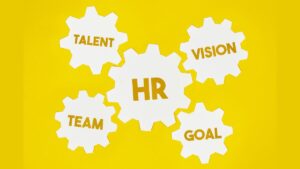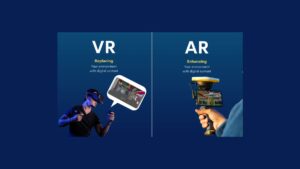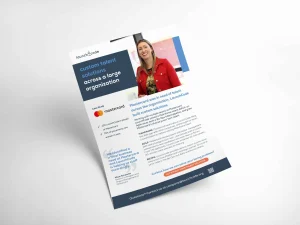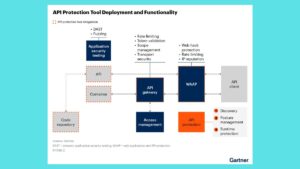AI-Powered Recruiting: How Artificial Intelligence is Revolutionizing Talent Acquisition

The world of talent acquisition is undergoing a significant transformation, driven by the integration of artificial intelligence (AI). What was once a manual, time-consuming process is becoming faster, smarter, and more efficient thanks to AI-powered recruiting tools. From sourcing the right candidates to streamlining interviews, AI is reshaping how companies identify, attract, and hire top talent.
In this blog, we’ll explore how AI is revolutionizing recruiting and what benefits it offers to HR teams and businesses striving to stay ahead in a competitive talent market.
1. AI in Candidate Sourcing: Finding Talent Faster
One of the biggest challenges recruiters face is identifying the right candidates quickly and efficiently. Traditional methods—such as posting jobs and manually reviewing applications—are labor-intensive and often fail to attract the best talent. AI has changed that by enabling recruiters to tap into a much larger pool of candidates through intelligent sourcing platforms.
How AI Enhances Candidate Sourcing:
- Automated Resume Screening: AI can scan resumes and job applications at lightning speed, identifying candidates who meet the specific qualifications of a job posting. These systems analyze skills, experience, and qualifications, eliminating irrelevant applications and allowing recruiters to focus on top candidates.
- Predictive Talent Analytics: AI tools use predictive analytics to identify passive candidates—people who aren’t actively seeking jobs but could be a good fit for the company based on their skills and online presence. By scanning public data (like LinkedIn profiles), AI can recommend candidates who may not have applied but are highly qualified.
- Job Matching Algorithms: AI-powered platforms match candidates to job openings based on their skills, work history, and preferences. These platforms leverage sophisticated algorithms to find the right fit, saving recruiters hours of manual sorting.
This ability to search, screen, and identify talent quickly gives organizations a significant edge, particularly in industries where competition for highly skilled workers is fierce.
2. AI-Powered Chatbots: Streamlining Candidate Engagement
Once candidates are sourced, it’s crucial to keep them engaged throughout the recruitment process. This is where AI-powered chatbots come in. These virtual assistants are transforming the way recruiters communicate with potential hires, providing real-time, 24/7 interactions that enhance the candidate experience.
Benefits of AI Chatbots:
- Automated Candidate Queries: AI chatbots can answer common questions that candidates might have about the job, company culture, or next steps in the hiring process. By automating these interactions, recruiters free up time to focus on more complex tasks.
- Interview Scheduling: Chatbots can assist candidates in scheduling interviews by analyzing recruiter availability and setting up times that work for both parties. This reduces back-and-forth emails and accelerates the interview process.
- Pre-Screening: AI chatbots can even conduct initial candidate screenings by asking basic qualifying questions. Based on the candidate’s responses, the chatbot can decide whether to move the candidate to the next stage of the recruitment process.
Chatbots ensure that candidates feel connected and informed, reducing the risk of them dropping out due to a lack of communication—a common problem in traditional recruitment workflows.
3. AI in Interviewing: Enhancing Fairness and Efficiency
AI is also making waves in the interview process, particularly through video interviews and natural language processing (NLP) technologies. These tools help recruiters evaluate candidates more objectively while providing a seamless interview experience for candidates.
How AI Enhances the Interview Process:
- Video Interview Analysis: AI-driven video interview platforms analyze both verbal and non-verbal cues during candidate interviews. They can evaluate speech patterns, body language, tone of voice, and facial expressions to assess candidate soft skills like communication, confidence, and emotional intelligence. This adds a data-driven layer to candidate assessments.
- Automated Interview Scheduling: AI tools integrate with calendars to automate interview scheduling, ensuring both recruiters and candidates have a streamlined experience. AI also sends reminders and follow-up communications, helping keep the hiring process on track.
- Bias Reduction: AI can help reduce unconscious bias in interviews by ensuring that all candidates are evaluated using the same criteria. Algorithms focus on skills, qualifications, and performance during interviews, minimizing human bias that can impact decision-making based on factors like appearance, gender, or ethnicity.
By using AI in interviews, organizations ensure a fairer, more consistent process while saving time and reducing human error in candidate assessments.
4. Predictive Analytics: Improving Hiring Decisions
One of the most powerful applications of AI in recruiting is predictive analytics. By analyzing large datasets on employee performance, attrition rates, and market trends, AI helps recruiters make better hiring decisions.
Benefits of Predictive Analytics:
- Assessing Long-Term Fit: AI can predict which candidates are most likely to succeed and stay with the company long-term. By analyzing factors such as past job performance, cultural fit, and even work preferences, AI helps recruiters hire candidates who are more aligned with the organization’s goals and values.
- Workforce Planning: AI tools can forecast hiring needs based on business growth projections, industry trends, and seasonal variations. This allows HR teams to plan their recruitment efforts more effectively and avoid last-minute staffing shortages.
- Retention Predictions: By analyzing patterns in employee turnover, AI can flag potential retention risks before they arise. This helps HR teams address issues such as job dissatisfaction or misalignment early in the employee lifecycle.
With predictive analytics, recruiters aren’t just filling vacancies—they’re making data-driven decisions that impact long-term business outcomes.
5. Diversity and Inclusion: AI’s Role in Eliminating Bias
Diversity and inclusion (D&I) are critical priorities for organizations seeking to build innovative, competitive teams. However, traditional hiring processes are often riddled with unconscious bias, which can limit diversity. AI has the potential to reduce this bias by evaluating candidates based on objective criteria rather than subjective factors.
AI’s Impact on D&I:
- Blind Hiring: AI can anonymize candidate information (such as names, gender, or age) during the initial screening process, ensuring that candidates are judged solely on their skills and qualifications. This reduces bias based on identity markers.
- Bias Detection in Job Descriptions: AI tools can analyze job descriptions to detect and eliminate biased language that might deter underrepresented groups from applying. By crafting more inclusive job postings, companies can attract a more diverse pool of candidates.
- Diversity Analytics: AI-powered analytics tools can track diversity metrics throughout the hiring process, highlighting areas where unconscious bias may be creeping in. This data-driven approach helps organizations refine their recruitment strategies to improve D&I outcomes.
AI empowers organizations to foster a more inclusive hiring process, ensuring that they tap into a wide array of talent and perspectives.
6. The Future of AI-Powered Recruiting
As AI technology continues to evolve, so will its impact on recruiting. In the future, we can expect AI-powered tools to become even more intuitive, integrating seamlessly with human recruiters to create a hybrid hiring process. While AI can handle repetitive and data-heavy tasks, human recruiters will continue to play a critical role in building relationships, assessing cultural fit, and providing a personalized touch.
Here are some emerging trends in AI-powered recruiting:
- AI for Candidate Experience: AI will continue to improve candidate experiences by providing personalized interactions, feedback, and recommendations, ensuring that candidates feel valued throughout the recruitment process.
- Skill-Based Hiring: As more companies move toward skill-based hiring (rather than degree-based or experience-based), AI will be instrumental in matching candidates to jobs based on their specific competencies.
- Deep Learning Algorithms: Advanced AI algorithms will be able to assess not just the qualifications of a candidate but also their potential to learn and adapt, creating more accurate predictions about future job performance.
Conclusion
AI-powered recruiting is no longer a futuristic concept—it’s here, and it’s transforming how companies attract, assess, and hire talent. From automating time-consuming tasks like resume screening and interview scheduling to improving diversity and inclusion through bias reduction, AI is enhancing the efficiency and effectiveness of talent acquisition.
As businesses continue to embrace AI in recruiting, they’ll not only save time and resources but also make more informed, data-driven hiring decisions that contribute to long-term success. While AI will never fully replace human recruiters, it will undoubtedly continue to play a central role in shaping the future of talent acquisition.







